
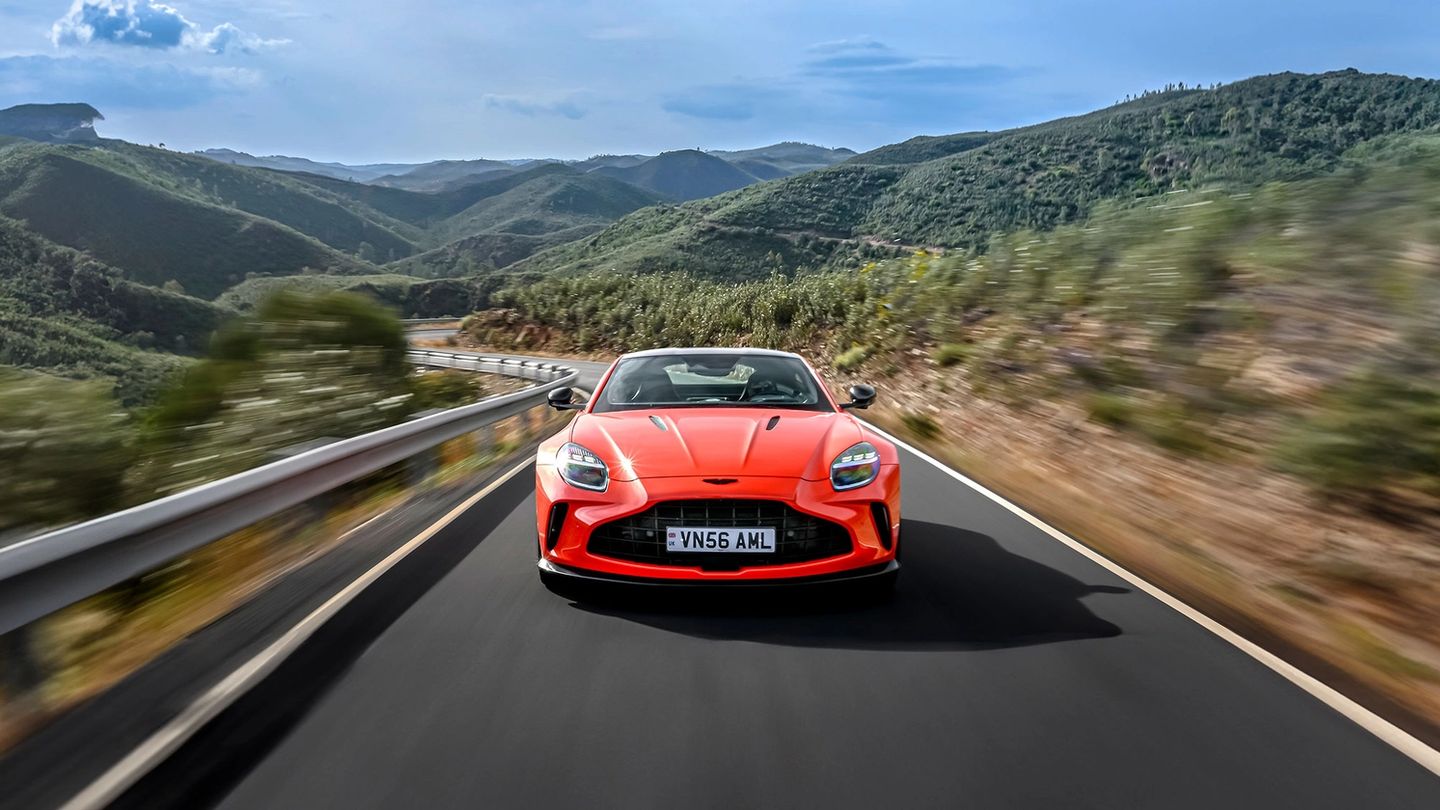
Words: Rory FH Smith
Going against the current these days is unusual, particularly in the car business. With more and more manufacturers following each other down the electrified highway at pace, the cars they produce are at risk of blending into the swarm of near-silent EVs and, in turn, shrugging off the best part of a century of combustion-engine development. But not Aston Martin. On the back of the launch of the lairy new V8-powered Vantage, the storied British carmaker is boldly bucking the trend and loudly carving out a new path for itself.
The new Vantage follows the well-received DB12 as further evidence that the 111-year-old venture is unashamedly focusing its efforts on producing cars with combustion engines dialled up to 11. “[People] want some electrification... but [to] still have the sportscar smell and feel and noise,” said chairman and owner Laurence Stroll after an earnings call back in February, 2024. Living up to that, it’s shifted back production of its first full-electric car by one year, to 2026, and has equipped its all-new Vantage with a 4.0L, AMG-derived, twin-turbo V8 that produces a whopping 656bhp – 153bhp more than the outgoing model – and not even a sniff of help from any form of hybridisation.
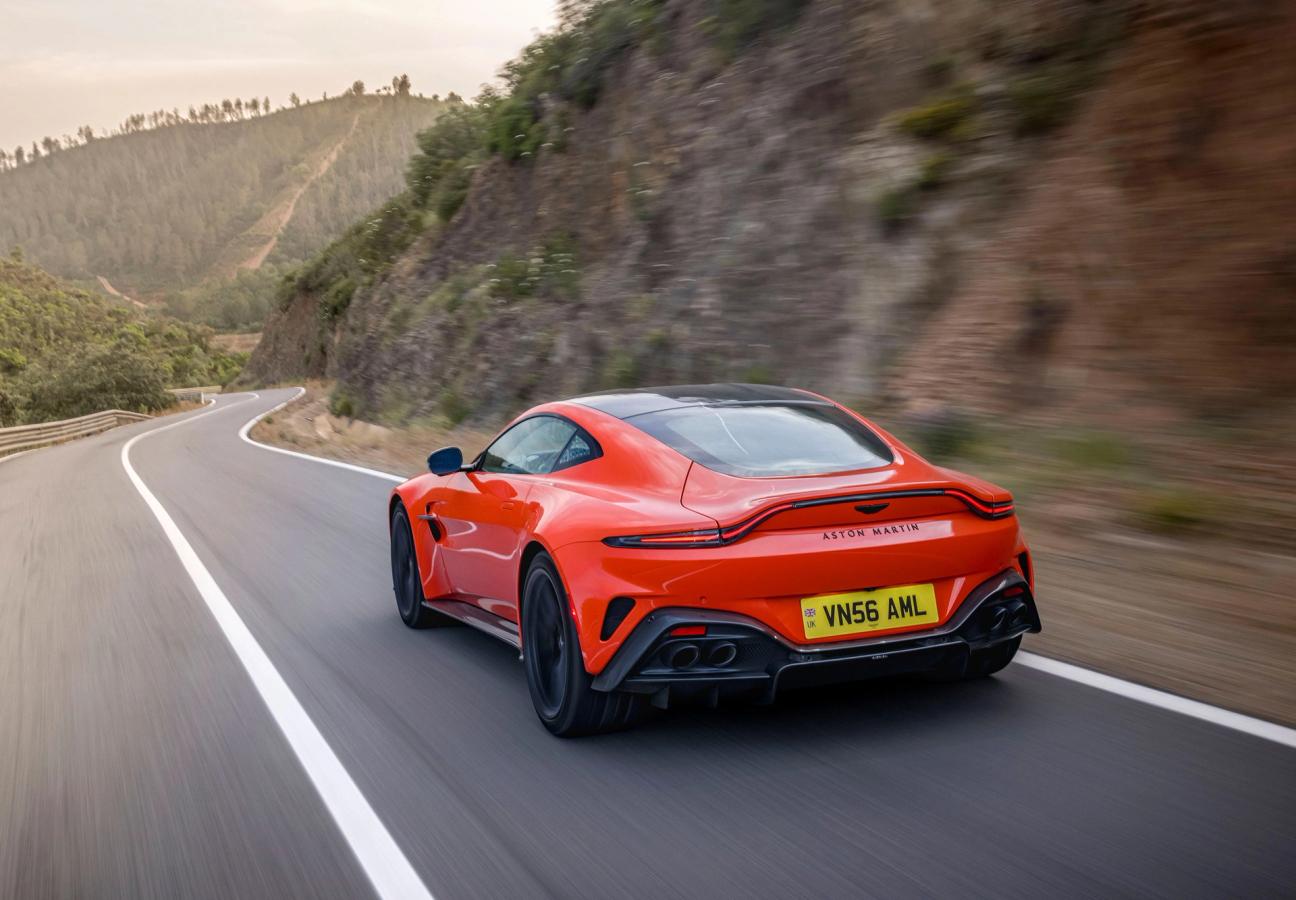
Given what lies under the bonnet, 0–62mph takes just 3.4 seconds and the top speed is a supercar-worthy 202mph. What that means, in practice, is a car that’s comfortable cruising the switchback roads I drove it on outside Seville, but can pack a mighty punch on track when the moment arises. Put simply, the Vantage is a refreshing departure from the steady and sanitised supercars we’ve come to expect in recent years.
True to their marketing strapline of ‘engineered for real drivers,’ Aston has produced a car that steps up to the mark when it comes to an intense and hugely engaging driving experience. Although there’s no four-wheel drive (yes, all 656bhp is going through the rear wheels), there is plenty of tech to help you along the way.
Despite that, the car’s Adjustable Traction Control system largely keeps things in check, although, in Track mode, it can be dialled up or down, depending on how brave you’re feeling, with eight settings to choose from. Positions one to four are best suited to slightly wet conditions or a more inexperienced track driver, and it cranks up considerably from five to eight. That’s where things get interesting and, if pushed, the Vantage will happily break traction and burn through its rear rubber. That’s not to say just anyone can jump in and smoke around their local track, particularly in the higher settings – it’s worth remembering there’s close to 700bhp being sent through the rear wheels, so it’s possible to find yourself in a spot of bother if you’re not focusing.
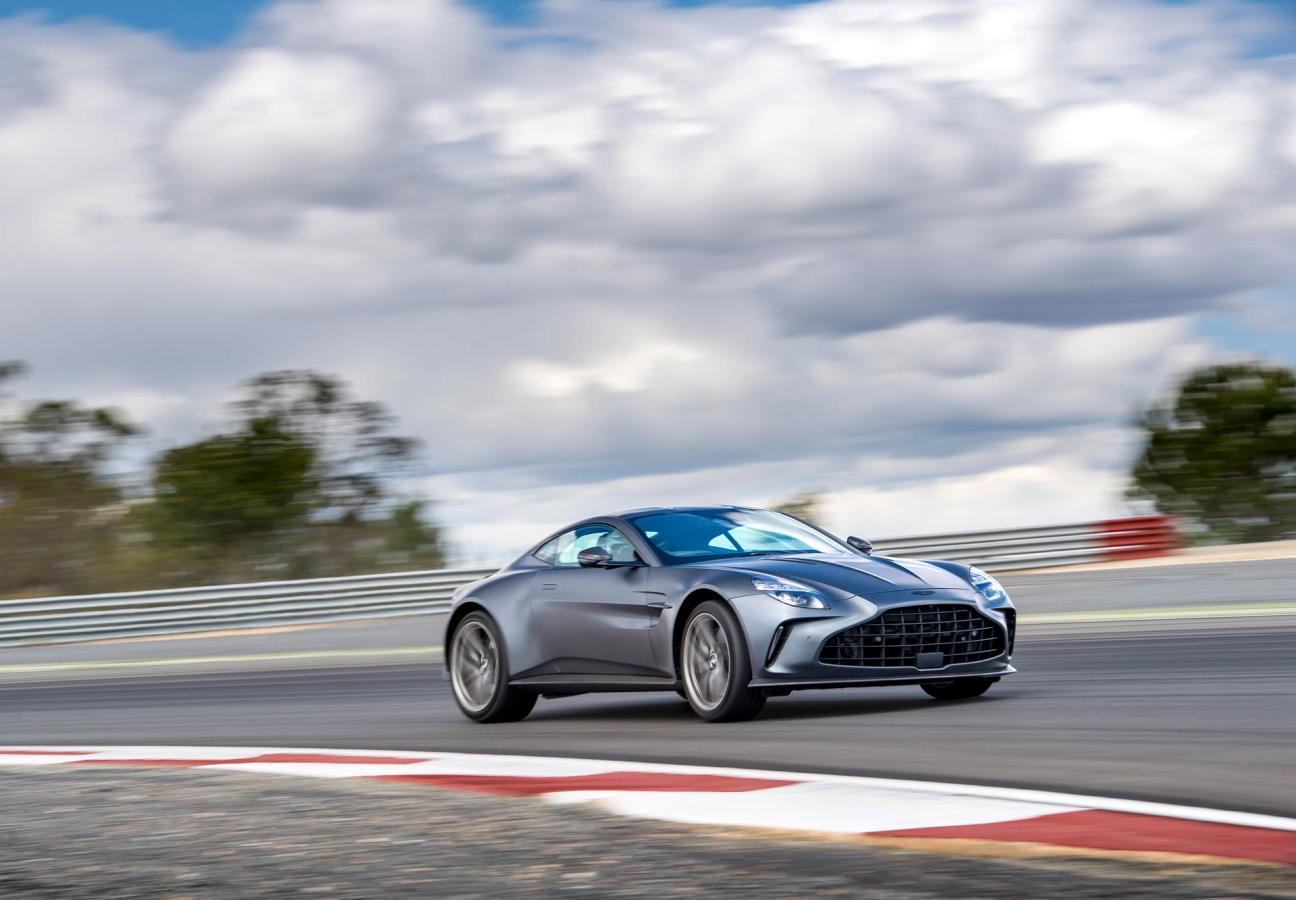
Either way, the new Vantage is a brutally powerful but beautiful machine. What was previously divisive-looking has blossomed into a handsome little sportscar, with more than a hint of Aston Martin’s limited-run One-77, from 2009, about it. The body is 30mm wider than the previous model, with a grille that’s 40 per cent larger than before, essential for sucking in enough air to fuel its twin-turbo V8. Above that, two rounded headlamps straddle each side with a vertical air intake sitting beneath them, an area that’s particularly close to the design of the One-77.
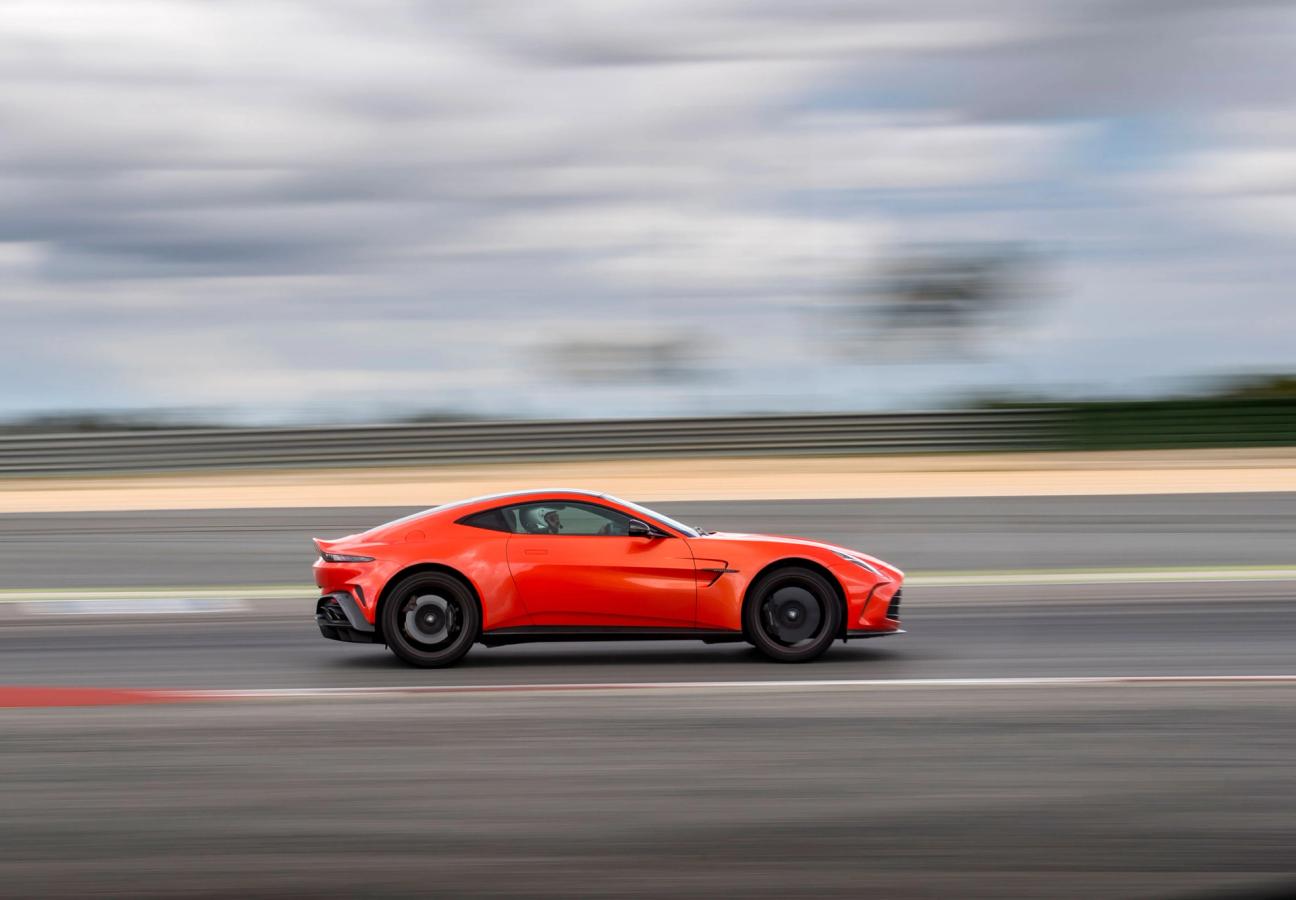
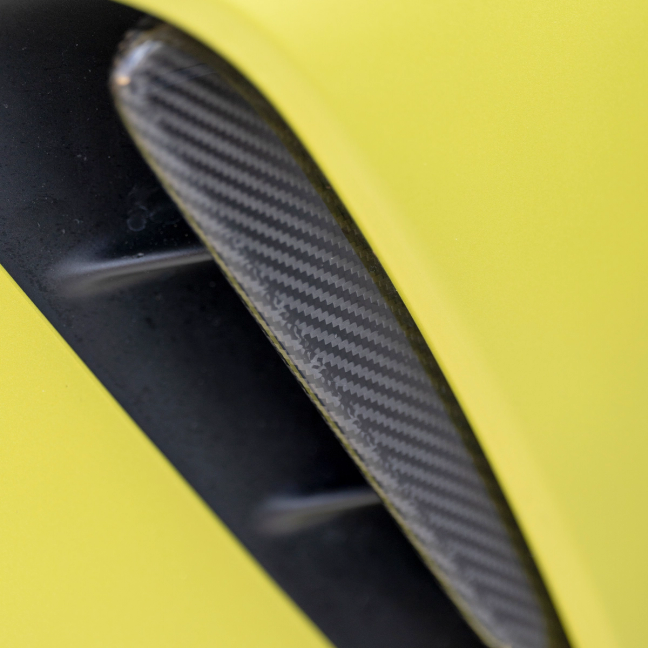
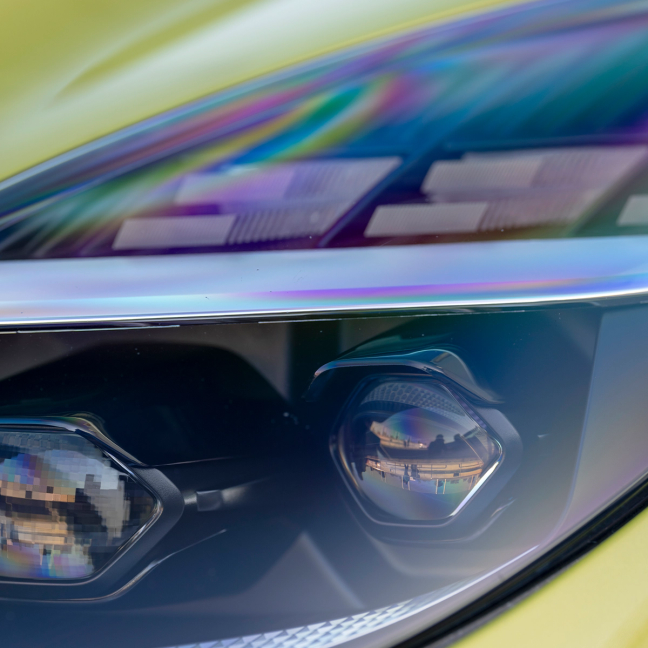
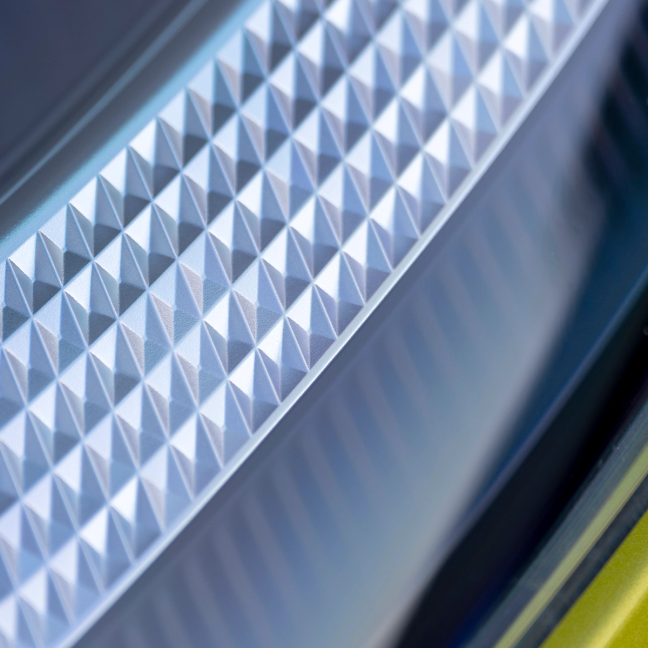
On the side, the classic Vantage side strake is a nod to the nameplate’s history, with that exact design detail dating back to the 1960s, when it denoted a special-performance variant of the DB cars. As a visual package, Aston has always excelled at making cars that look like the body is shrink-wrapped around the engineering underneath, and the Vantage builds on this beautifully. It’s taut, purposeful lines hint at its penchant for performance, but are still handsome from most angles. The back remains largely the same, save for the more obvious rear diffuser and larger exhausts, a point that some might still find a little challenging. With 21 colours to choose from as standard, there’s always Aston’s Q division to call on if you’re looking for something a little more bespoke, outside and in. (For a cost, of course.)
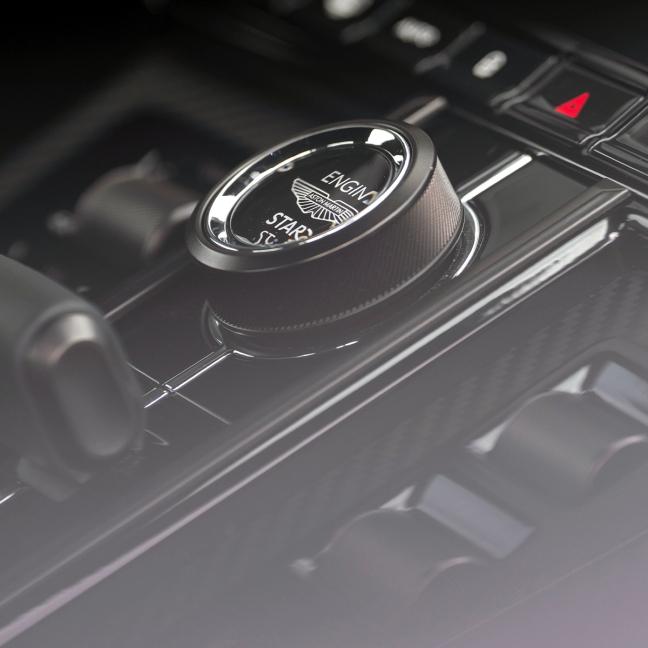

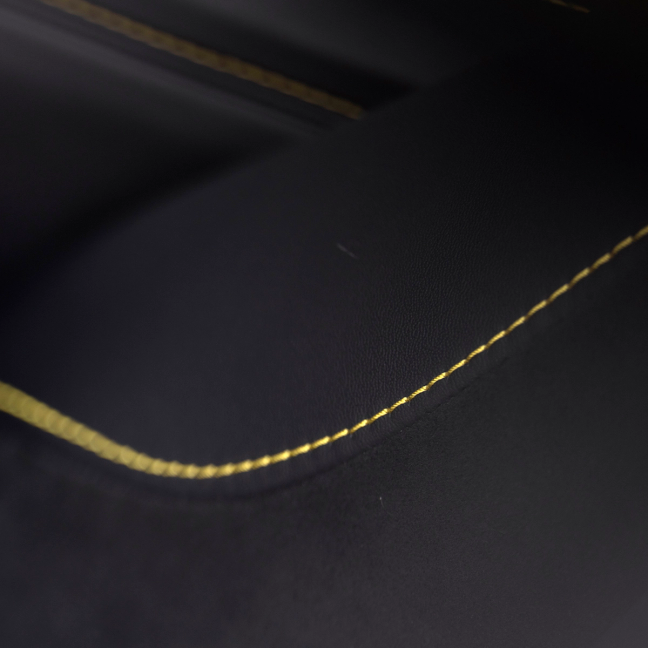
Inside, the Vantage takes on a much-improved interior, as first seen on the DB12, deploying the same touchscreen infotainment system and a near-identical mix of hard-button controls for things such as climate, volume and seats. In short, it’s a comfortable place to pass the time and, with the option of either a sports seat or carbon-fibre performance seat, the cabin can be specced to suit either a touring or racing agenda. Opt for the sports seats for daily driving or longer distances and the Vantage becomes a very viable grand tourer. There’s even enough room behind the seats and in the boot for a reasonable amount of luggage.
Here, Aston has created a true rival to the many 911s coming out of Porsche. With prices starting from £165,000, the Vantage is more aligned with the Turbo or a top-end GTS, but it offers something a little different. Yes, on paper, the 911 would be a more sensible investment – and potentially faster around the track, too – but the irresistible twinkle in the Aston’s eye is hard to ignore. For those looking for a well-rounded, handsome and ballistically quick two-seater sportscar, Aston’s finally come up with the answer.
Want more car content? Read our review of the Rolls-Royce Cullinan Series II…


